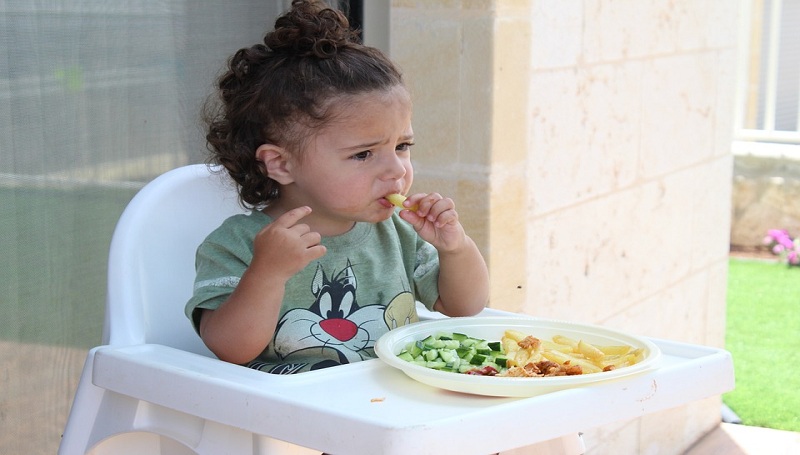Ways to Manage Your Child’s Dental Emergency
Dental emergencies happen to people from all walks of life.
Children, however, tend to be more likely to suffer falls, spills, and all kinds of mishaps that could lead to a dental emergency, mainly because of the youthful energy and enthusiasm they typically put into their activities.
There’s also the fact that children can also be a bit less coordinated in their movements, with some of them being downright clumsy.
Most dental emergencies caused by an accident will always involve a lot of pain. In most cases, there would be bleeding and swelling as well. No parent would ever want their kids to suffer the agony of a dental injury.
In the event your child suffers a dental emergency, you need to be completely prepared to deal with it. Knowing a reputable emergency dentist would be one. Here are some other tips on how to manage any dental emergency that involves your child.
Stay As Calm As Possible
Keeping your head will always be the most important thing to do in case of a dental emergency.
While it’s perfectly normal to be extremely worried once you see your child bleeding from the mouth or crying out in pain, you need to do your best to stay calm the entire time.
As much as possible, avoid getting hysterical when faced with a dental emergency because it’s not going to help your child feel any better. The only thing hysterics will do is send your child into a panic. Whatever happens, never let your emotions get the better of you for your child’s sake.
For a cracked, broken, or chipped tooth:
Find the piece of the tooth that broke off, rinse it, and bring your child to the emergency dentist so it can be reattached.
If there’s swelling, apply a cold compress to the affected area. To make sure there are no tooth fragments left inside, have your child rinse off his or her mouth.
For a knocked-out permanent tooth:
Find the tooth, and make sure to pick it up by the crown and not by the root.
Rinse off any dirt and keep it moist by putting it in a cup of cold milk or water.
Bring your child to the emergency dentist within 30 minutes to improve the chances of successful reimplantation.
For a broken jaw:
A broken jaw is an all-out medical emergency, so dial 911 immediately.
Keep your child seated in a reclining position and comfort him or her while you wait for paramedics. A cold compress can help with any swelling.
Help your child avoid dental emergencies
While we can’t tell when dental emergencies will happen, there are some things we can do to reduce the risk of one happening to our loved ones, including telling them to:
- Never use their teeth to open packages or any other objects.
- Refrain from running when they have objects like a lollipop inside their mouth.
- Avoid biting into and eating popcorn kernels, ice, and hard candy.
- Wear their seatbelt in the car at all times.
Preventing Sports-related Dental Emergencies
If your child is a competitive athlete, the risk of suffering a dental emergency would be even higher.
While dental emergencies can also happen to gymnasts, volleyball players, runners, and other athletes in non-contact sports, those who compete in sports that involve contact among players are even more likely to find themselves involved in one.
Football players, for example, are often on the receiving end of tackles.
Basketball players, meanwhile, always face the risk of getting elbowed in the mouth or jaw.
For hockey players, a wayward puck in the mouth could knock out a tooth or two.
Sparring matches for combat sports like karate and taekwondo, which are popular among kids, can lead to a dental injury for the competitors.
Injuries—including ones to the mouth—are common in sports. While we cannot predict or completely prevent sports-related dental emergencies among our kids, we can lessen their impact by making them use mouth guards and face cages.
Mouth Guards
Also known as a mouth protector, a mouthguard is one of the top tools for lowering the risk of dental and oral injuries among athletes.
It is designed to cushion blows—accidental or otherwise—to the face. Although its primary job is to protect the upper teeth, a mouth guard is also quite useful in minimizing injuries to the soft tissues of your tongue, lips, and cheek lining.
Available over the counter and in dentists’ offices, mouth guards offer kids the best chance of retaining all their teeth long after they’re done playing their chosen sport.
Face Cages
In some sports, a face cage—also referred to as a face shield—is a mandatory piece of sports equipment.
Baseball catchers and ice hockey goalkeepers must wear face cages while performing their roles because it would be a complete disaster if they didn’t.
Many Little League pitchers can easily throw the baseball at 60 miles per hour, while a hockey player won’t have any problem sending a puck flying at 80 mph on average.
Without a face cage, catchers and hockey goalkeepers run the risk of a severe dental emergency as well as injuries to the eyes, nose, jaw, and delicate facial bones with every game.
Dental injuries are a serious matter, and they could happen to your child at any time. Hopefully, the tips listed above can help prepare you for any dental emergency.
About The Author
Dr. Gary Salwin leads the Glendale Dental Group, Arizona. He and his team treat dental emergencies and perform a whole range of dental services. He has been practicing dentistry for more than 36 years.




